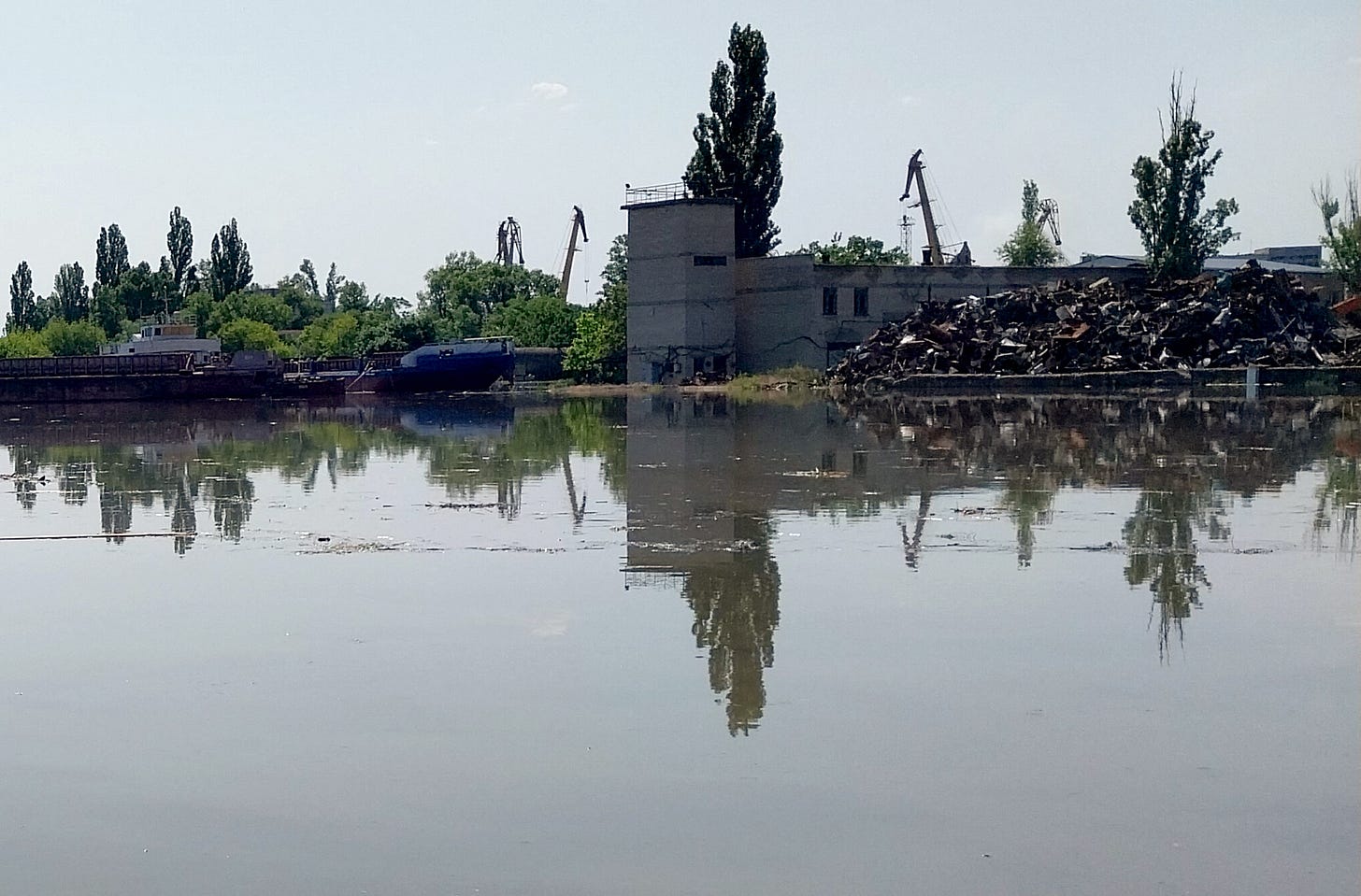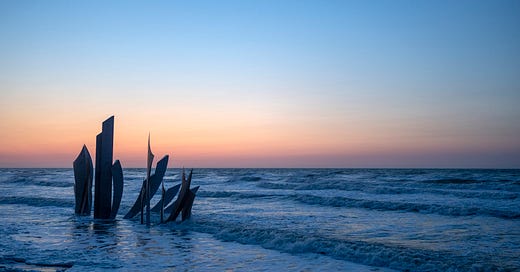TL(PM) DIGEST: Lost in the flood
Plus Labour's plan for the UK, declining trust in public schools, and Blinken of Arabia

1. Moscow blows major dam as Ukrainian counteroffensive gears up
What happened? The Kakhovka dam and hydroelectric power plant on the Dnieper River collapsed overnight, putting tens of thousands of Ukrainian civilians at risk and threatening an anticipated Ukrainian military counteroffensive in the Kherson region. Russian forces controlled the dam before its collapse, and President Zelenskyy said Moscow had “detonated a bomb of mass environmental destruction.”
Why does it matter? The destruction of the dam throws a wrench into Ukrainian counteroffensive plans, both by making swathes of territory impassible due to flooding and forcing tens of thousands of civilians to evacuate towns and villages in the flood zone. It’s also likely that the deliberate destruction of the dam amounts to a war crime, as several European officials have already asserted.
TLP’s take: Add another war crime to Vladimir Putin’s charge sheet. Beyond the obvious dire consequences for civilians facing rising waters, destroying a major dam is not the action of a government confident that its armed forces can withstand an adversary’s imminent counteroffensive.
2. UK Labour Party pursues Biden-style industrial policy
What happened? The Financial Times takes a comprehensive look at the opposition Labour Party’s economic plans should the party win control in the next UK parliamentary elections. Shadow chancellor Rachel Reeves—Labour’s treasury secretary-in-waiting—and other advisers were recently in the U.S. previewing their plans:
“It’s going to be Bidenomics on steroids,” says one adviser to the UK’s opposition party—a reference to the large subsidies for technology and green energy that the administration has introduced.
Why does it matter? The Labour Party has repositioned itself strongly with the British electorate under the leadership of Keir Starmer. Labour’s economic plans to pursue a UK-specific industrial policy will be a key component of showing the country Labour can lead it back to economic prosperity:
Little remarked upon until recently, Starmer put his most radical proposal on the table back in September 2021—a plan to borrow £28bn a year until 2030 to spend on green transition policies such as subsidising wind farms, insulating homes, building battery factories and accelerating Britain’s nuclear programme.
It will be by far the most costly policy in Labour’s draft manifesto for the next election, currently dwarfing in financial terms its plans to improve Britain’s creaking schools, hospitals, police and other public services.
A blizzard of other policies are now being rolled out, as Starmer scents power: an overhaul of Britain’s stifling planning rules; a rewrite of swaths of employment law; some targeted higher taxes on the wealthy; and constitutional reforms including scrapping the House of Lords.
TLP’s take: Ahead of expected parliamentary elections in 2024, Keir Starmer’s Labour is making all the right moves to reposition itself as a common-sense alternative to the long-ruling Conservatives. Matching cultural normalcy and patriotism with an ambitious national industrial policy to help bring the country—across all regions—out of economic stagnation is smart politics and good policy. American Democrats should take note.
3. Huge partisan divide on the value of public schools
What happened? The Pew Research Center presented 8 charts showing the state of public opinion about education based on its 2022 data. One of the more striking findings shows the stark divides about the overall value of public schools:
Why does it matter? As seen in this chart, more than 7 in 10 Democrats believe that K-12 public schools are having a positive impact on the way things are going compared to more than 6 in 10 Republicans who believe public schools are having a negative impact on society.
TLP’s take: Public schools are vital to the overall success and well-being of American citizens. Turning public education itself into just another front in the culture wars—whether by the left or the right—only serves to undermine the nation overall. If we want to rebuild more positive sentiment about schools across lines, we need to get back to the basics:
In school districts across the country—and in national education circles—parents, teachers, administrators, outside groups, and politicians are at each other’s throats over competing political ideologies in the schools rather than focusing their attention on the most pressing national need: Making sure all children learn the basics and emerge from school well prepared to be future workers, scientists, business leaders, public servants, military members, entrepreneurs, and good citizens…
Whether a student decides to enter college or pursue a trade or blue-collar occupation, they should finish school with the academic foundations necessary for success in life and work plus a basic understanding of American society and government necessary to be an effective citizen.
4. Blinken heads to Saudi Arabia as Riyadh cuts oil production
What happened? Secretary of State Blinken begins a three day trip to Saudi Arabia to meet with Saudi and Gulf Arab officials, where they’ll talk about regional de-escalation and the anti-Islamic State coalition will meet; Blinken is also expected raise the issue of potential Saudi normalization of relations with Israel. In addition, Riyadh unilaterally cut its planned oil production in a bid to raise prices—though at a possible loss of Saudi Arabia’s market share.
Why does it matter? Though it’s unlikely any progress will be made on normalization, Blinken’s visit is a sign that relations between the United States and Saudi Arabia have at least somewhat grown more stable after a rocky start. But Riyadh’s oil production cuts won’t win it any friends in America, where energy prices remain a key source of popular economic discontent.
TLP’s take: In the absence of any lasting Israeli-Palestinian peace deal and given political realities in Israel, Saudi Arabia, and the United States, normalization between Saudi Arabia and Israel remains a pipe dream. Continued Saudi reliance on oil revenues to fund its “gigaprojects” will continue to create tension with an America still concerned about inflation and gas prices—tension that both sides should do a better job recognizing and managing.
Just one more thing…
Rising sea levels are eroding the Normandy beaches where American, British, and Canadian troops landed 79 years ago today, leaving local residents, historical preservationists, and government officials in a quandary about how best to keep the memory of D-Day alive in the face of environmental changes.







